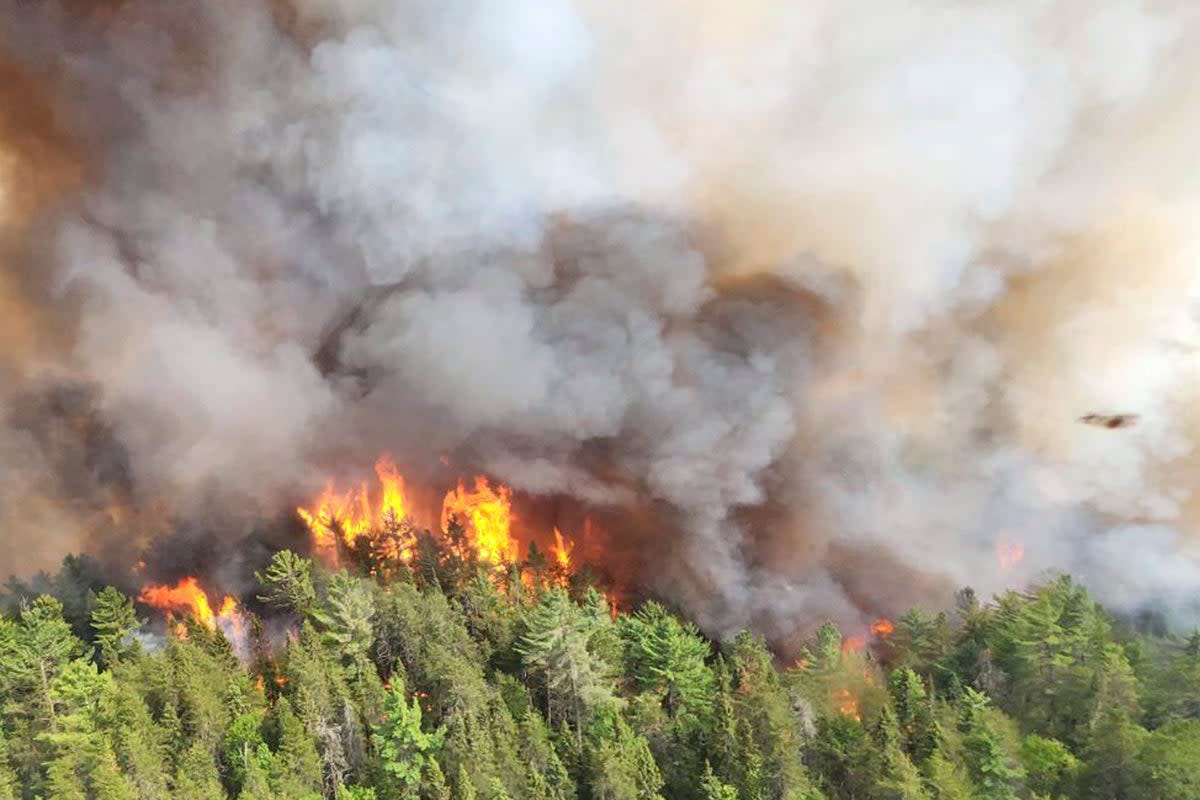Wildfire smoke from Canada might be a problem ‘all summer’

As the number of wildfires continues to grow across Canada, public officials are warning that raging infernos and smoke could be a problem “all summer”.
Three new fires ignited on Monday bringing the total to 447 active blazes, with almost half burning out of control. Nearly 19,000 square miles have burned across Canada this year so far.
Tens of thousands of people have been evacuated from their homes including large numbers in Quebec, Alberta and British Columbia. Hundreds of firefighters have arrived from countries like Australia, New Zealand, the US, South Africa, Chile, Costa Rica and France to assist the exhausted Canadian crews.
Francois Bonnardel, Minister of Public Security in Quebec, said that a number of towns in the province remained at risk.
“This is a first in the history of Quebec to fight so many fires, to evacuate so many people,” he told NDTV this weekend. “We are going to have a fight that we think will last all summer.”
The scale and ferocity of the fires means that smoke-filled skies will also likely remain a threat in the coming months for parts of Canada and the northern US.
New York City was experiencing a “moderate” amount of air pollution on Monday, according to federal monitor AirNow.gov, which recommended that people who are “unusually sensitive” to particle pollution reduce their time outdoors.
Extreme fire activity continues in Western Canada, keeping smoke in the skies of Canada and northern United States. pic.twitter.com/2ILOyeUx6C
— CIRA (@CIRA_CSU) June 12, 2023
Last Wednesday, New York was enshrouded in an apocalyptic orange haze as thick smoke billowed south from the fires and caused “hazardous” air pollution. The Big Apple was not alone – tens of millions of people across the Northeast and Midwest received air quality alerts which advised them to stay inside and wear masks outdoors to prevent smoke inhalation.
Schools halted gym classes and field trips, flights were delayed and a number of major events including baseball games, horse-racing, Broadway shows and Pride celebrations were cancelled or postponed before the stalled low-pressure system which channelled the smoke broke on Saturday.
Natural Resources Canada has warned that there is potential for “continued higher-than-normal fire activity across most of the country” until the season ends in October due to severe drought and increased temperatures.
Wildfire risk will increase throughout this month from British Columbia all the way east to the Atlantic coast.
“During July, wildfire potential is expected to expand into Yukon, although the eastern edge will recede from western Quebec into central Ontario,” the agency added.
Global temperature rise, caused by emissions from burning fossil fuels, is leading to more large, erratic wildfires around the world. It’s a vicious circle: emissions pumped into the atmosphere by fires add to global heating, further drying out the land and vegetation, and making it more susceptible to catching fire.

